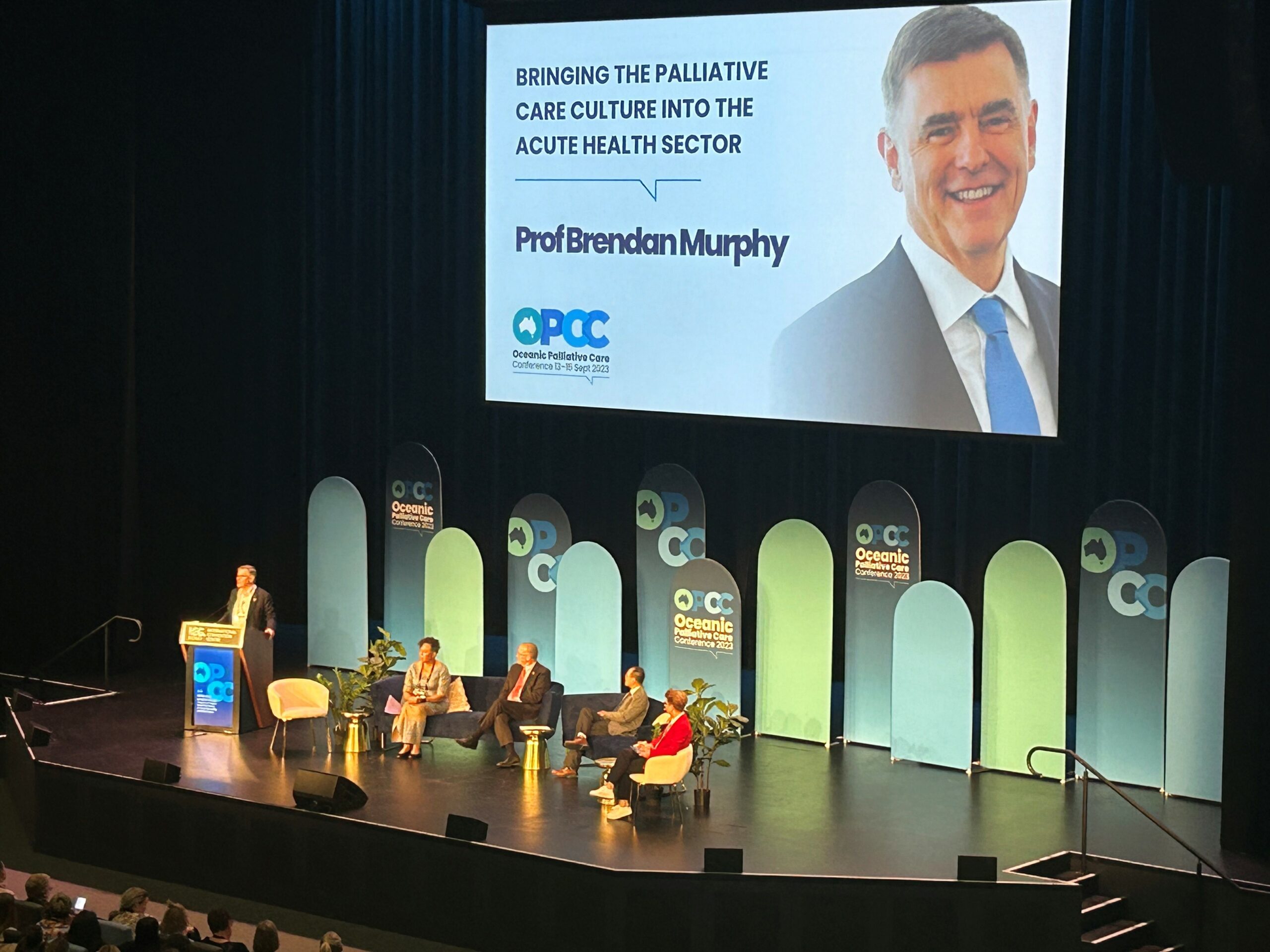Professor Brendan Murphy: The wider healthcare sector needs to take on palliative care
Professor Brendan Murphy: The wider healthcare sector needs to take on palliative care
by Megan Blandford
Friday, November 24, 2023
At the 2023 Oceanic Palliative Care Conference (23OPCC), Professor Brendan Murphy reflected on how healthcare as a whole could benefit from the values and practices of palliative care.
At a time of stretched resources, burnt out staff and volunteers, and emerging social, economic and environmental challenges, the former Secretary of the Department of Health and Aged Care, and Australia's Chief Medical Officer during the height of the Covid pandemic came to 23OPCC with a message to inspire Australia's approach to health and care.
Professor Brendan Murphy believes one step towards achieving the change and care needed for the future is utilising the innovative models of care displayed by palliative care.
How palliative care can influence a more widespread patient-centred model of healthcare
“Palliative care has broadened its reach, from initially focusing on the late stages of end-of-life care for cancer patients in hospitals or hospice settings, to a broad philosophical approach that recognises that end-of-life care can span many years, many life-limiting conditions, and should not be hospital centric if at all possible," Prof Murphy told the conference's 1400 delegates.
Professor Murphy argues that the challenges in current healthcare models could be assisted by alternative approaches – all with the goal of focusing on patient care.
“One approach that I have championed for some time is to respectfully integrate the philosophy and approach of palliative care across all or selected clinical units,” he says.
“Whilst palliative care is clearly a specialty in its own right, with its own technical goals and measurements of outcomes … it is, and has always been, grounded in a clear philosophical approach that values the quality of life over the prolongation of life.”
This unique approach could help other healthcare specialisations to refocus on those same values.
The strengths of palliative care that other healthcare sectors could benefit from
Professor Murphy believes that seeking, listening to and respectfully enacting the wishes of patients and their carers and families are the strengths of palliative care.
“Some acute care clinicians, even now, would be surprised at the value of engaging palliative care expertise quite early in the discussion of a significant illness,” he says.
“Some would be surprised at the willingness and readiness of patients and families to have these issues raised before embarking on potentially burdensome treatment, and to have the opportunity to have their desires discussed in relation to their last few years of life, even when the duration of those last few years is still difficult to determine.”

According to Prof Murphy, it is both this early approach and the openness of such conversations that could benefit patients across various healthcare sectors. He credits the evolution of formalised advanced care directives for opening up such conversations.
“It is these conversations with patients, and often with families or substitute decision makers, that a philosophical approach and the clinical leadership of palliative care clinicians can be incredibly valuable,” he says.
“Bringing palliative care clinicians into these early discussions … can focus on genuinely identifying the patient’s wishes and communicating in a balanced way, both the upsides and downsides of a therapeutic intervention.”
However, Professor Murphy acknowledges there aren’t enough palliative care specialists in Australia to take part in all of these conversations. Instead, he highlights the importance of embedding the culture and specialisation of palliative care into general practice, nursing, aged care, and hospital policies.
The value that palliative care brings to the wider healthcare community should be commended, Professor Murphy points out.
“As an interested outsider and supporter, I congratulate and salute the palliative care community, and the many dedicated clinicians who have had untold positive impact on the end-of-life care of so many people.”
Video recordings of 23OPCC sessions involving Prof Murphy are now available to watch on demand via the 23OPCC Education Hub. Recordings are available free of charge to delegates as part registration. Subscriptions can also be purchased for between $200 and $400. More info and access - HERE.
